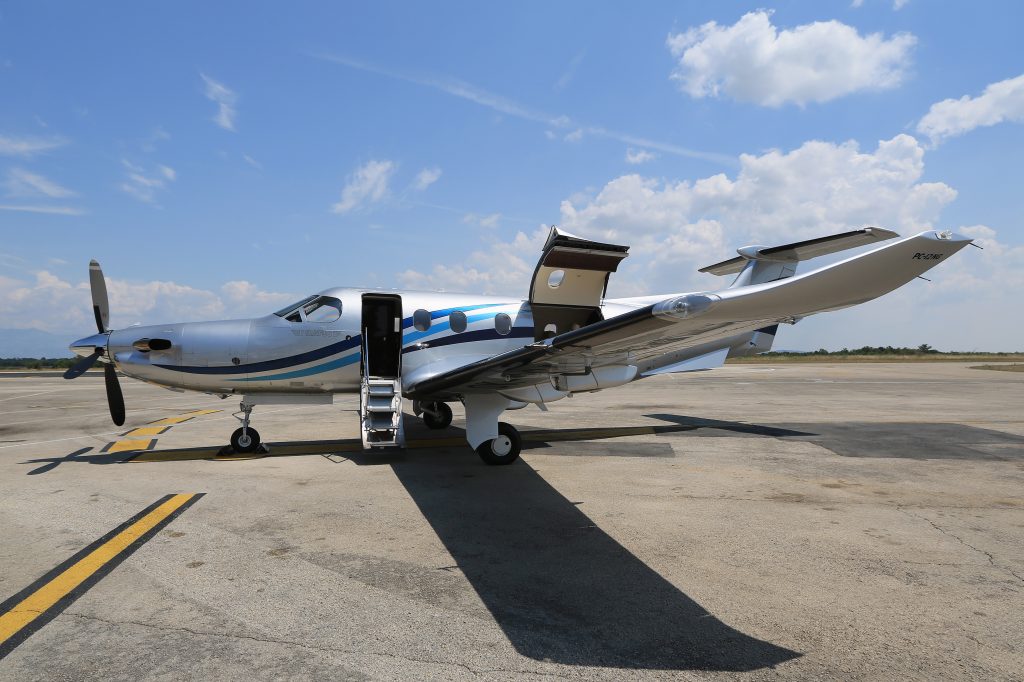Switch to:
 EN
EN  Português (PT)
Português (PT)  Español (ES)
Español (ES)
The inclusion of new rules in RBAC 91 aims to reduce bureaucracy in general and executive aviation in Brazil.
You don’t need to know the world of aviation in depth to know that the costs of acquiring, maintaining, and operating a private aircraft are likely not exactly affordable. Given the remarkable importance that business aviation has gained over the last two decades in our country, private aircraft are no longer just luxury and exclusivity products, and have become true and indispensable tools for gaining productivity and geographic freedom.
In the context of such expansion, with the publication by ANAC (the National Civil Aviation Agency) of Resolution No. 606 on February 11, 2021, being part of the select club of aircraft owners in Brazil became simpler — and, hence, more affordable. Considered as one of the greatest concerns of users of business aviation after public consultations carried out by ANAC on two different occasions, in 2015 and 2019, and already common practice by the FAA in the United States since the 1980s, the shared ownership of aircraft was finally recognized and formalized, reducing bureaucracy in the acquisition of aircraft and allowing the division among shareholders of all the costs and nuances that permeate the ownership of an aircraft.
Introduction of Aircraft Sharing in Brazil
Resolution No. 606/2021 provides for the amendment of RBAC (Brazilian Civil Aviation Regulation) No. 91, adding in this document “Subpart K” which deals exclusively with the requirements to be met by shared ownership management companies of aircraft, partners, quotaholders, associates, or holders of shared property programs.
ANAC’s decision, taken especially with a view to establishing greater standardization for business models involving shared ownership of aircraft, aims to bring operations that fall under “Subpart K” of RBAC No. 91 to those already adopted by the operators of RBAC No. 135 – the regulation specifically dealing with Brazilian air taxis. Therefore, there is an express need to have an administrator responsible for the operation of the aircraft used by the shareholders – with at least two fully airworthy aircraft, that is, in flight conditions -, in addition to a single manager responsible for working with ANAC ensuring that the provisions of “Subpart K” are faithfully complied with and applied to the transaction. It will also be up to the manager, in the same way, to be the link between the quotaholders of the aircraft and their operator, as registered in the Brazilian Aeronautical Registry. The requirements ensure, in addition to transparency in the relationship between operators and shareholders, the safety of operations on each flight, whatever the type of mission or the profile of the shareholder.
Sharing Applied in Practice
As for shared ownership, in general terms, the structure adopted and authorized in Brazil allows, in the case of aircraft, ownership to be divided into up to 16 shareholders, in contracts with a minimum duration of one year. The purchase of quotas can be made in a personalized way by each customer, in order to meet their respective demands exactly. If among the quota holders there is one who wants to use the aircraft sporadically just for leisure or family travel, they can do so by purchasing a smaller amount of quotas. Likewise, if another shareholder needs agility and availability for constant and even immediate displacements, he will adapt the purchase of his shares in order to reconcile his needs with the use of the plane.

To understand even better how the quota system works on shared ownership of aircraft, let’s do an exercise in imagination: think about the fact that, because of your professional activity, it is necessary to constantly move around the country, keeping a pace of travel that maximizes your productivity. After calculating the average time spent on their shifts, a need for up to 150 hours per month on the aircraft was noted. In this case, your purchase will guarantee the availability of the chosen aircraft for this contractually established period without the possibility of increasing the number of hours flown. This limitation is precisely due to the provisions of “Subpart K” of RBAC 91: the use should not be characterized as an air transport service, which would be configured if you, as a shareholder, used 200 hours of flight instead of 150 hours acquired in quotas.
Shared Ownership of Aircraft: Rights and Duties
In addition to the right to use the aircraft shared by shareholders, the contracts signed with the administrator allow the sharing of fixed costs inherent to the operation. These costs include, for example, aircraft maintenance services, remuneration, and training of their crew (pilots and, if applicable, flight attendants).
Otherwise, according to the same regulation, it is necessary to reimburse the administrator for the expenses of variable costs of each flight – that is, those involving fuel, accommodation and crew costs for overnight stays, hangar, boarded food, insurance, and fees, among others .

